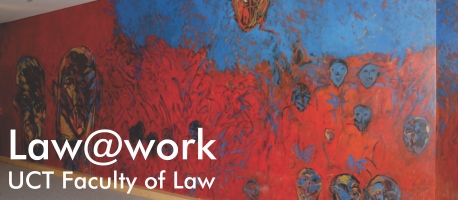
Much of the day-to-day practice of labour law is in the hands of advisors and representatives who are not lawyers, and who may have little or no formal legal training.
This short course aims to provide those who may not have a legal background the opportunity to access training in the practical application of labour law both in the workplace and in formal dispute resolution procedures at the CCMA and in bargaining councils. The course provides a strong theoretical and vocational basis to assist delegates in their current or future careers and lays the groundwork for other formal studies in the area of dispute resolution practice or for further study towards a CCMA-accredited qualification.
Join us for a semester-long short course, which includes three two-week contact sessions presented remotely via Zoom.
When and where?
This course is not currently scheduled.
Check out our Course Overview page to see all our current courses. Or join our mailing list to stay up to date with newly-scheduled courses.
Course outline
Successful participants will be equipped with:
- Appropriate knowledge of basic labour law and industrial relations principles, and the labour market in South Africa
- An understanding of labour relations aspects within the International Labour Organization (ILO)
- An appreciation of the requirements of equity and efficiency in the workplace, and economic development and social justice in both the workplace and society at large
- An understanding and appreciation of diversity
- An understanding of labour law and related areas of law (for example, the law of contract and evidence) and the ability to apply this in practice
- Basic competencies in:
- Drafting legal documents (affidavits, rescission applications, condonation applications, postponement applications, joinder applications)
- Initiating, investigating, conducting and managing internal disciplinary hearings and incapacity inquiries
- Representation of parties in the conciliation processes
Assessments
You will be required to do an evaluation to receive a certificate of completion. This will consist of a number of assignments and a practical observation.
Assignments will play a crucial part of the success of each participant and their purpose is threefold:
- To assist participants to work through the study material
- To teach participants the necessary reading and writing skills
- To teach participants to make a synthesis from various sources, to gather material and present it in a logical, ordered fashion and with convincing arguments {merely copying the study material is not acceptable).
The proper completion of assignments is an important tool not only to ensure that participants complete the prescribed work, but also to give them the opportunity to test their capabilities and insights. At the same time, the assignment questions should serve as an indication of the level of knowledge and understanding we expect from students. The assignments will form 90% of the assessment marks.
Practical observations will consist of students observing conciliation and opposed arbitrations proceedings in practice. This will form 10% of the assessment marks and provide participants with the basics of how the CCMA operates.
There will be no examinations for this course.
The final mark is calculated as follows: Assignments (taken together) = 90%, observations = 10%
The overall required pass mark to obtain the certificate of completion is 60%. Students who do not qualify for the certificate of completion but have attended more than 80% of the remote contact sessions will be awarded a certificate of attendance.
Who will benefit from this course?
- Human resource and industrial relations practitioners
- Owners and senior employees of businesses
- Labour consultants
- Organisers, legal officers and other officials of trade unions and employer organisations
Presenters
The bulk of the lecturing will be presented by:
In addition to the lecturers listed above, a number of leading experts and specialists will attend as guest lecturers, including ILO officials, judges, corporate managers and trade union officials.
How much?
R18,500 per person. The fee includes any course materials. Full payment must be received three days before the course starts.
Certificate
A certificate of completion from the University of Cape Town will be awarded to students who successfully complete the programme, which includes one or more assignments and an observation module.
How to sign up
Complete and submit the registration form. You will then be given the payment information. Please note that registrations will not be accepted until payment has been made.
One or two days before the course, we will send you the Zoom link. You will need to register and use a password to enter the virtual classroom.
Registrations close three days before the course starts.
Download the brochure.

